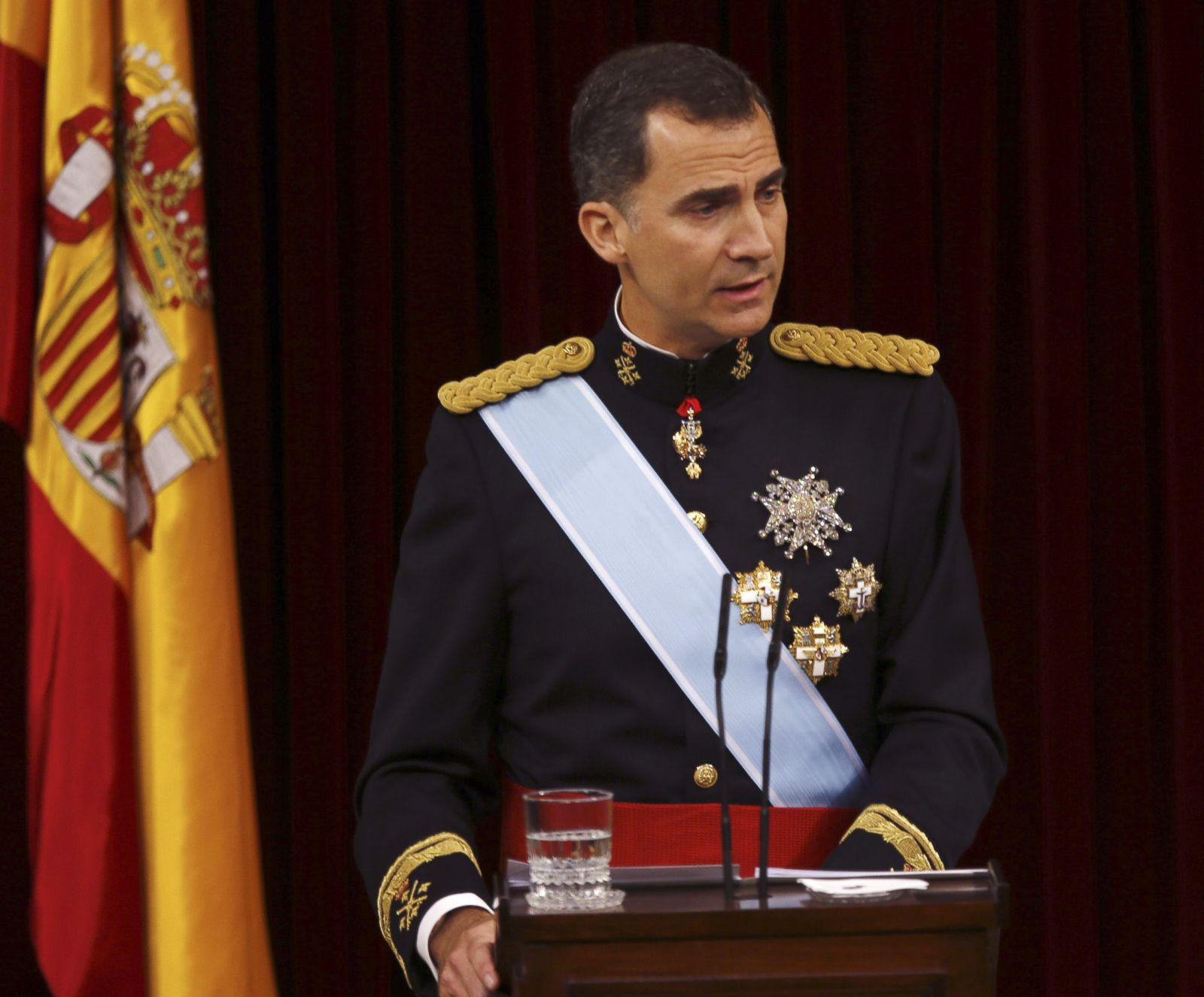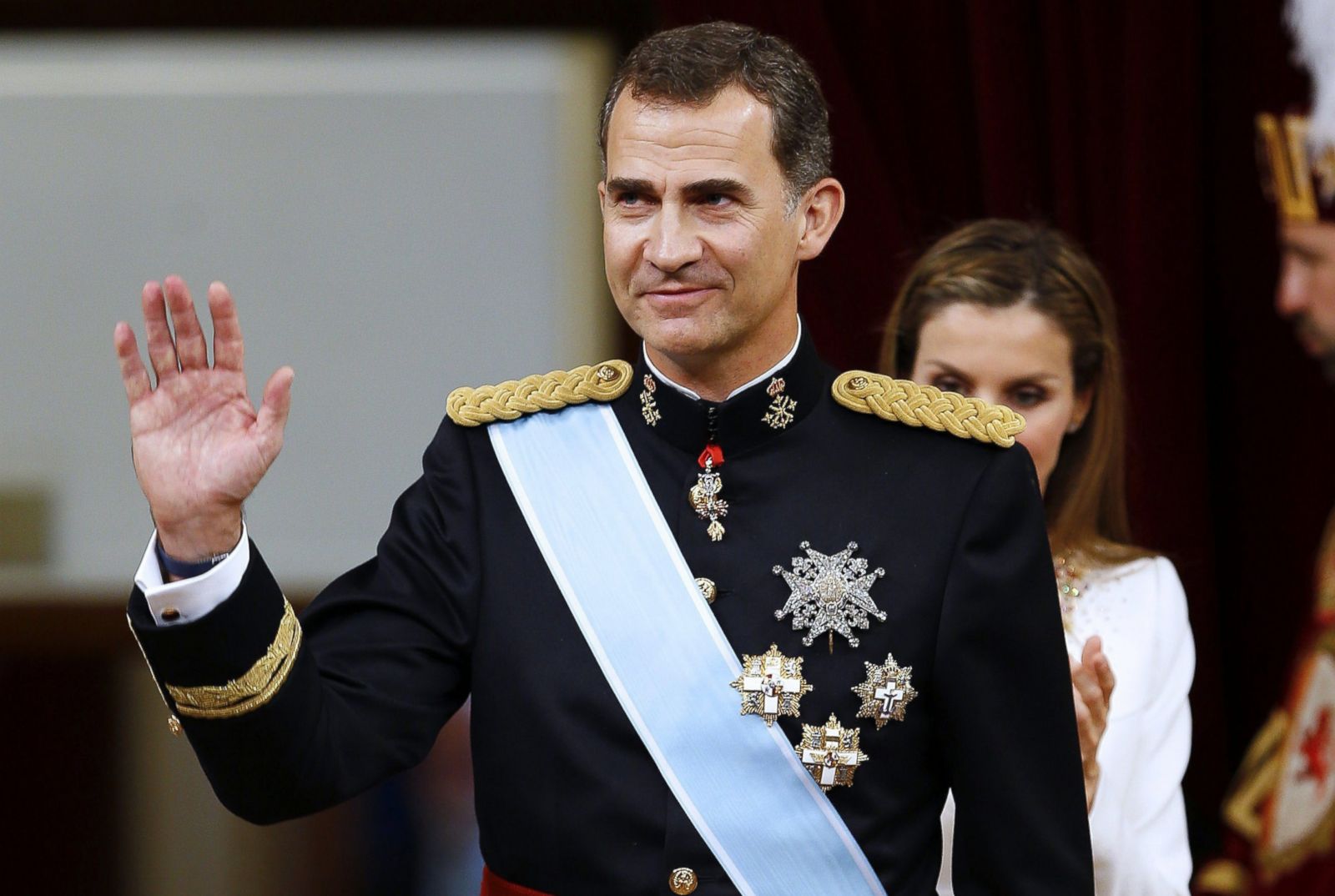Historical Significance

The King of Spain holds a profound historical significance, deeply intertwined with the nation’s cultural, political, and societal development. The monarchy has played a pivotal role in shaping Spain’s destiny, leaving an indelible mark on its history and identity.
The King of Spain is known for his dedication to his country, but his personal life has also garnered attention. His eldest daughter, Infanta Elena, was married to Jaime de Marichalar, but the couple divorced in 2010. In contrast, the King’s younger daughter, Infanta Cristina, is still married to Iñaki Urdangarin, who was convicted of embezzlement in 2018.
The King’s son, Felipe VI, is the current King of Spain and is married to Letizia Ortiz Rocasolano. Prince Harry , on the other hand, is a member of the British royal family and is married to Meghan Markle. The King of Spain and Prince Harry have both faced challenges in their personal lives, but they have both remained dedicated to their respective countries.
The origins of the Spanish monarchy can be traced back to the Middle Ages, with the establishment of the Kingdom of Asturias in the 8th century. Over the centuries, the monarchy expanded its territories through conquests and alliances, culminating in the creation of the vast Spanish Empire in the 16th century.
King Felipe VI of Spain, a renowned figure in European royalty, has always been admired for his dedication to his country and his family. However, the king’s personal life has also garnered attention, particularly his relationship with Jelena Djokovic , the wife of tennis star Novak Djokovic.
Despite their different backgrounds and cultures, the couple has managed to maintain a strong and loving bond, becoming an inspiration to many.
Timeline of Key Events
The following timeline highlights key events in Spanish history related to the monarchy:
- 718 CE: Establishment of the Kingdom of Asturias, marking the beginning of the Spanish monarchy.
- 1469: Marriage of Ferdinand II of Aragon and Isabella I of Castile, leading to the unification of Spain.
- 1492: Christopher Columbus’s voyage to the Americas, funded by the Spanish monarchy.
- 1588: Defeat of the Spanish Armada by the English, marking the decline of Spanish naval power.
- 1700: War of the Spanish Succession, leading to the establishment of the Bourbon dynasty on the Spanish throne.
- 1808: Napoleonic invasion of Spain, resulting in the overthrow of the monarchy and the establishment of Joseph Bonaparte as king.
- 1814: Restoration of the monarchy with Ferdinand VII.
- 1931: Second Spanish Republic, abolishing the monarchy.
- 1947: Restoration of the monarchy with Francisco Franco as regent.
- 1975: Death of Franco and accession of Juan Carlos I to the throne.
- 2014: Abdication of Juan Carlos I and accession of Felipe VI to the throne.
Role in Spanish Culture and Society
The Spanish monarchy has played a significant role in the development of Spanish culture and society. The monarchy has been a patron of the arts, supporting the work of renowned artists, writers, and musicians. The monarchy has also played a role in the preservation of Spanish traditions and heritage.
Current Role and Responsibilities

The King of Spain, currently Felipe VI, serves as the Head of State and Commander-in-Chief of the Armed Forces. The Spanish monarchy is a constitutional monarchy, which means that the King’s powers are limited by the Spanish Constitution.
The King’s constitutional powers include:
- Appointing the Prime Minister and other government officials
- Sanctioning and promulgating laws
- Declaring war and making peace
- Granting pardons
- Representing Spain on the international stage
The King’s role is largely symbolic, and he does not have any real political power. However, he does play an important role in representing Spain on the international stage and in promoting Spanish culture and values.
Role in International Relations
The King of Spain is responsible for representing Spain on the international stage. He meets with foreign leaders, attends international conferences, and promotes Spanish interests abroad. The King also plays a role in promoting Spanish culture and values around the world. He often visits Spanish-speaking countries and supports Spanish language and culture programs.
Public Perception and Legacy: King Of Spain
The King of Spain is a revered figure in the country, symbolizing the nation’s history, culture, and unity. However, the monarchy’s popularity has fluctuated over time, influenced by various factors.
During the reign of King Juan Carlos I, the monarchy enjoyed high levels of public support. His role in the country’s transition to democracy after the Franco dictatorship earned him widespread respect and admiration. However, the monarchy’s reputation was tarnished by subsequent scandals involving the royal family, including financial irregularities and extramarital affairs.
Factors Influencing Public Perception, King of spain
- Political Stability: The monarchy has been a stabilizing force in Spanish politics, providing continuity and legitimacy to the government.
- Historical Significance: The monarchy has a long and storied history in Spain, dating back centuries. This deep-rooted connection to the past resonates with many Spaniards.
- Cultural Symbolism: The King is seen as the embodiment of Spanish culture and heritage, representing the nation’s traditions and values.
- Royal Family’s Conduct: The behavior and actions of the royal family have a significant impact on public perception. Scandals and controversies can damage the monarchy’s reputation, while positive actions can enhance its popularity.
- Changing Social Values: As Spanish society has become more modern and progressive, some have questioned the relevance of the monarchy in the 21st century.
Challenges and Opportunities
The monarchy faces several challenges in the future, including:
- Republican Sentiment: A growing number of Spaniards support the establishment of a republic, challenging the legitimacy of the monarchy.
- Economic Pressures: The monarchy’s lavish lifestyle and high costs have come under scrutiny during economic downturns.
- Modernization: The monarchy needs to adapt to changing social norms and values to remain relevant and respected.
However, the monarchy also has opportunities to strengthen its position:
- Symbolic Role: The monarchy can continue to serve as a symbol of national unity and pride, especially during times of crisis or celebration.
- Cultural Ambassador: The royal family can promote Spanish culture and heritage on the world stage.
- Philanthropy: The monarchy can support charitable causes and social initiatives, demonstrating its commitment to the well-being of the Spanish people.